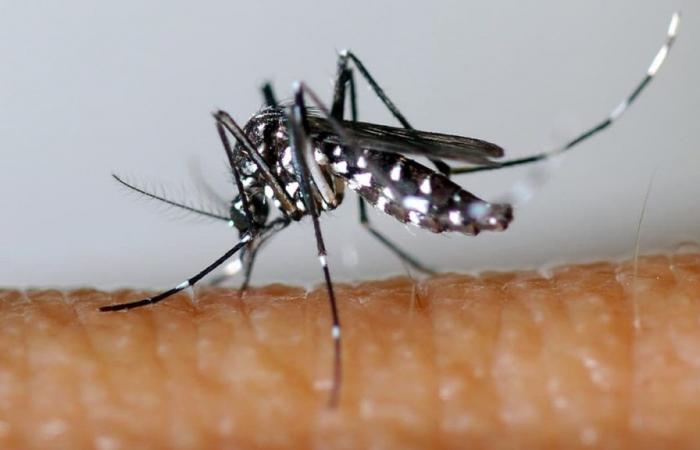
The tiger mosquito, established in Île-de-France, is capable of transmitting five diseases, including dengue. Preventative measures can be taken to avoid infections.
During the Paris 2024 Olympic Games, they will be closely scrutinized. In a press release published this Tuesday, June 18, the Pasteur Institute recalls “the importance of reinforced surveillance” of cases of viruses transmitted by tiger mosquitoes in Paris: dengue, chikungunya, zika…
From January 1 to April 19, “1,679 imported cases of dengue fever were recorded in mainland France, i.e. 13 times more than last year over the same period”, warns the Pasteur Institute.
And with the organization of the Olympic Games in France, “it is envisaged that this number will increase”, due to “additional flows of people from countries endemic for other arboviruses”, writes the Institute.
According to a study carried out by researchers from the Pasteur Institute, “in collaboration with the Regional Mosquito Control Agency and the National Reference Center for Arboviruses (Inserm-Irba)”, these insects are capable of transmitting five types of viruses on the Island. -de-France: West Nile, chikungunya, Usutu, Zika and dengue.
Above all, this research made it possible to refine the transmission times at an external temperature of 28°C. Thus, it takes three days for the West Nile virus, between 3 and 7 days for the chikungunya virus and Usutu, and between 14 and 21 days for dengue and Zika.
“Disinfestation within 21 days”
The objective of this data is to know the right timing to trigger disinfestation, if a case of dengue fever is detected in the region.
“We now know that disinfestation must take place within 21 days. These results make it possible to adjust the shooting window so that the approach is optimal,” explains Anna-Bella Failloux, head of the Arbovirus and insect vectors unit. from the Pasteur Institute, which led this study.
Researchers advise people returning from travel and presenting symptoms of fever or body aches to consult their general practitioner without delay, as well as to specify their area of origin.
“The alert system in France is efficient, the processes to follow and the actions to take are already operational thanks to the overseas territories (…) There is in particular the Arbo-France network, to which my team is affiliated, and we are contacted as soon as an arbovirus is detected”, indicates Anna-Bella Failloux.
In the event of an infected person, diagnostic tests may be carried out. An epidemiological investigation must then be carried out by the Regional Health Agency (ARS). The latter will make it possible to trace the places frequented by the infected person in order to disinect them.
Actions should also be taken to limit the spread of mosquitoes. You must avoid stagnant water which allows the larvae to develop, equip yourself with mosquito nets or wear long clothes.





